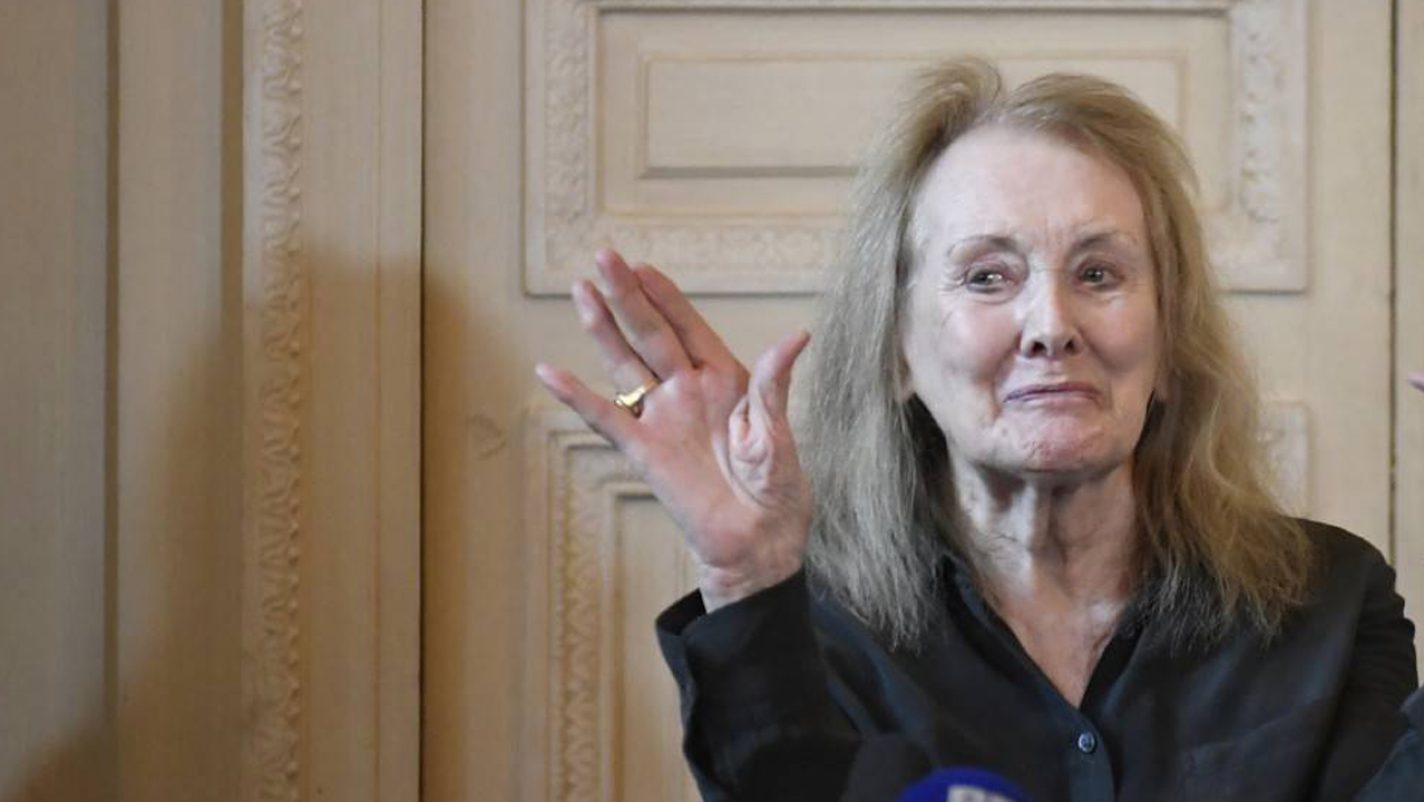French writer, Annie Ernaux, has won the Nobel Prize in Literature, for what the Nobel committee chair said was an “uncompromising” 50-year body of work exploring “a life marked by great disparities regarding gender, language and class.” The prestigious accolade is awarded by the Swedish Academy and is worth 10 million Swedish kronor (£807,000). Prof. Carl-Henrik Heldin, chair of the committee, said the 82-year-old’s work was “admirable and enduring.” He said she used “courage and clinical acuity” to tell semi-autobiographical stories that uncover “the contradictions of social experience and describe shame, humiliation, jealousy or the inability to see who you are.” Reacting, Ernaux said it was “a great honour,” adding that “writing is a political act, opening our eyes for social inequality.”
For this purpose, she uses language as “a knife”, as she calls it, to tear apart the veils of imagination. Her books, including A Man’s Place and A Woman’s Story, are considered to be contemporary classics in France. She is the first French woman to win the literature prize, and told Swedish broadcaster SVT it was “a responsibility.” To her, “I was very surprised… I never thought it would be on my landscape as a writer. It is a great responsibility… to testify, not necessarily in terms of my writing, but to testify with accuracy and justice in relation to the world.” She was born in 1940 in Normandy, where the setting for her early life was “poor but ambitious”, Prof Heldin said. Her parents ran a café and grocery shop, and when she encountered girls from middle-class backgrounds, she experienced the “shame of her working-class parents and milieu for the first time,” according to her website. That would later feed into her novels. Her official biography said the main themes of her work were “the body and sexuality; intimate relationships; social inequality and the experience of changing class through education; time and memory; and the overarching question of how to write these life experiences”.
Ernaux studied literature, having worked as an au pair in London, and was married with two children and teaching in a French secondary school when her first book was published in 1974. Cleaned Out was a fictionalised account of the illegal abortion she had in 1964, which she kept secret from her family. Her work is largely autobiographical. She revisited that trauma 25 years later for the book Happening, in which she “sifts through her memories and her journal entries dating from those days”. It was turned into a film that won the top prize at last year’s Venice Film Festival. Speaking further, Prof Heldin said: “Annie Ernaux manifestly believes in the liberating force of writing. Her work is uncompromising and written in plain language, scraped clean.” She got divorced in the early 1980s, and in 2000 she retired from teaching to devote herself to writing. Another of Ernaux’s books, The Years, won the Prix Renaudot in France in 2008 and the Premio Strega in Italy in 2016, while a year later she won the Marguerite Yourcenar Prize for her life’s work. In 2019, The Years went on to be shortlisted for the Man Booker International Prize, whose judges called it a “genre-bending masterpiece”.
Booker said at the time that “autobiography is given a new form, at once subjective and impersonal, private and collective”. The New Yorker wrote in 2020 that over her 20 books, “she has been devoted to a single task: the excavation of her own life”. Awarded since 1901, The Nobel Prizes recognise achievement in literature, science, peace and latterly economics. Last year’s literary prize was won by Tanzanian novelist Abdulrazak Gurnah. Other winners have included novelists such as Ernest Hemingway, Gabriel Garcia Marquez and Toni Morrison, plus poets such as Louise Gluck, Pablo Neruda, Joseph Brodsky and Rabindranath Tagore, and playwrights including Harold Pinter and Eugene O’Neill.

